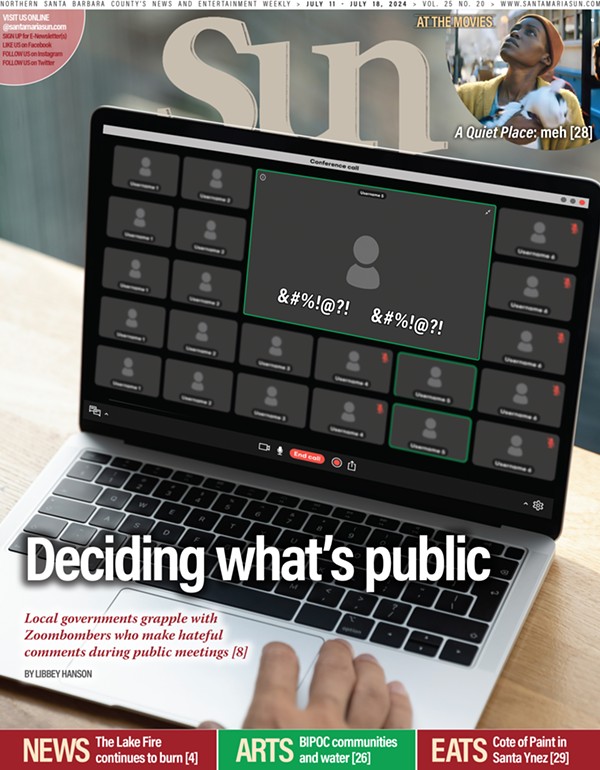Can you believe that governments aren’t required to record their public meetings and post them in an archive so anyone can view them?
It seems like they have to, but they don’t. They have to keep “minutes”—and depending on the governing board those can be extremely detailed or not detailed at all.
Basically, if you miss a meeting and want to know exactly what happened, who said what, and how an elected official responded, tough beans, if it isn’t recorded.
Did you know that your comments can be muted from the record if the lawyer or mayor doesn’t like what you had to say?
Because cities aren’t required to hold virtual meetings, the city can choose what comments are available online and what aren’t, according to former Solvang City Attorney David Fleishman, who’s the current city attorney for Atascadero and Pismo Beach.
“The city is not obligated to put the YouTube [video] up at all,” he said. “So, if it gets muted, that’s something the city has the ability to do, but it’s not obligated to provide YouTube recordings on its website or anywhere else.”
In a recent Atascadero City Council meeting recording posted to YouTube, three commenters and Fleishman’s response to one of the commenters were muted. He cut one of the commenters off during the actual meeting when the speaker broached the topic of white supremacy. Fleishman, however, let anti-LGBTQ-plus speakers continue their rants—as he felt the topics were under the jurisdiction of the council at that particular meeting.
Weird.
What happened in Solvang when he was attorney and a city council meeting was Zoombombed? Racist and inflammatory comments made by virtual attendees were heard by virtual listeners, but not people who attended the November 2023 meeting in person—an ironic little twist.
“It’s very difficult because we don’t know in advance, other than by the screen names that we see on the screen, whether or not someone is going to have a legitimate public comment until they start speaking,” he told the Solvang council at the time.
Seems similar for the in-person public commenters. Some of those people are cuckoo for Cocoa Puffs. But. (And this is going to sound like I’m coming down on the side of the Zoombombers who spread their racist, inflammatory, bigoted rhetoric even though I don’t condone what they’re doing.) Shouldn’t the things that happen at a public meeting be shared with the public?
Isn’t that literally the whole point of a public meeting? And who gets to decide what’s offensive and inflammatory and who is practicing their First Amendment right or stepping over the line? It’s dicey territory.
Solvang attempted to create a policy that would deal with the problem but didn’t get around to passing anything. In Arroyo Grande, the city attorney makes that decision on the fly during meetings. Sounds subjective.
The city of San Luis Obispo banned live virtual public comments and requires a pre-recorded virtual public comment to be submitted for review prior to the meeting. Sounds sketchy.
Atascadero is no longer accepting virtual comments. Sounds like an accessibility issue.
So what’s the answer? There are rules in the works at the legislative level—and hopefully they include a recording requirement. Because we should already have that.
The Canary is always in favor of more transparency. Send comments to [email protected].











